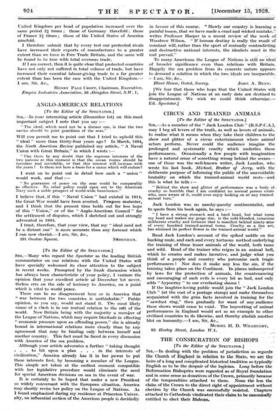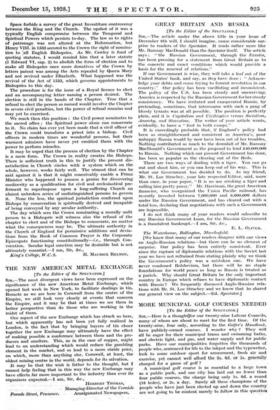heirs of a long and complicated historical tradition so typically
English as to be the despair of the logician. Long before the
Reformation Bishoprics were regarded as of Royal foundation and in some sense as donatives of the Crown, primarily because of the temporalities attached to them. None the less the claim of the Crown to the direct right of appointment without election by the Church was- successfully resisted. Chapters attached to Cathedrals' vindicated their claim to be canonically entitled to elect their Bishops.
Space forbids a survey of the great Investiture controversy between the King and the Church. The upshot of it was a
typically English compromise between the Temporal and Spiritual Powers which persists to-day. The law as to rights of patronage was not altered at the Reformation, but Henry VIII. in 1583 secured to the Crown the right of nomina- tion to tall English Bishoprics. As Mr. Cawley is fond of quoting statutes, I would remind him that a later statute (1 Edward VI, cap. 2) to abolish the form of election and to make all Bishoprics once more donatives of the Crown by letters patent was among the Acts repealed by Queen Mary and not revived under Elizabeth. What happened was the revival of the Act of 1533, which governs appointments to Bishoprics to this day.
The procedure is for the issue of a Royal licence to elect and an accompanying letter naming a person desired. The election is still in the hands of the Chapter. True that a refusal to elect the person so named would involve the Chapter in severe civil penalties, but the power of refusal remains and may yet be exercised.
We reach then this position : the Civil power nominates to the sacred office ; the Spiritual power alone can consecrate to it. No claim has ever yet been made that a civil officer of the Crown could transform a priest into a bishop. Civil officers in modern times are wonderful persons, but their warmest admirers have never yet credited them with the power to perform miracles.
It may be urged that the process of election by the Chapter is a mere form. . The Crown in reality creates the Bishops. There is sufficient truth in this to justify the present dis satisfaction in Church circles with a system which on the whole, however, works fairly well. The Utmost that can be said against it is that it might conceivably enable a Prime Minister who happened to possess a genius for discovering mediocrity as a qualification for civil and ecclesiastical pre- ferment to'superimpose upon a long-suffering Church an alniost unbroken series of undistinguished persons to govern it. None the less, the spiritual jurisdiction conferred upon Bishops by consecration is spiritually derived and incapable of being conveyed by any secular authority.
The day which sees the Crown nominating a morally unfit person to a Bishopric will witness also the refusal of the chapter to elect and of the Bishops to consecrate, no matter what the consequences may be. The ultimate authority in the Church of England for permissive additions and devia- tions from the Book of Common Prayer is the Corporate Episcopate functioning constitutionally—i.e., through Con- vocation. Secular legal sanction may be desirable but is not ultimately essential.—I am, Sir, &c.,









































 Previous page
Previous page